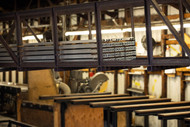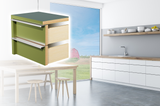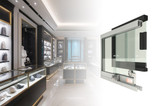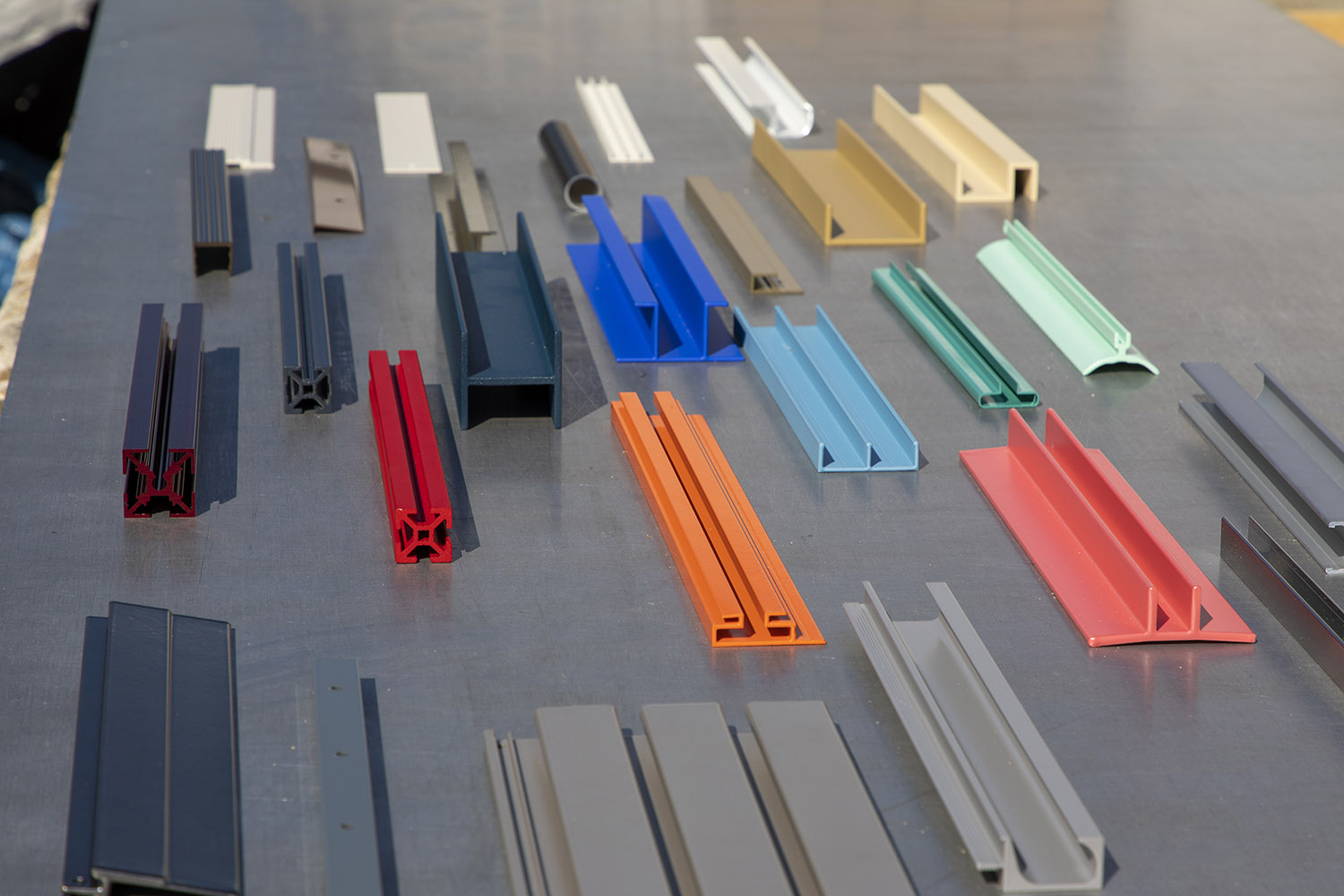Everything You Need to Know About Aluminum and Its Uses

Aluminum (spelled and pronounced aluminium outside of North America) is the 13th element on the periodic table and one of the most abundant metals on the planet. Aluminum is frequently used to produce consumer goods and building materials, but its many useful physical properties make it suitable for a wide range of applications.
In our guide to Aluminum 101, we will cover:
- Why Use Aluminum?
- Aluminum vs. Aluminum Alloy
- Aluminum Manufacturing Methods
- Aluminum Properties
- How is Aluminum Used?
Why Use Aluminum?
Aluminum is abundant, strong, temperature resistant, malleable, inexpensive, corrosion resistant, recyclable, lightweight, conductive, and reflective.
When alloyed with other elements, no other metal can compare to aluminum’s versatility, making it one of the most important metals in the world.
Aluminum vs. Aluminum Alloy
Although aluminum is a natural element, you won’t stumble across any aluminum sheets in the wild. Hydrated alumina, also known as bauxite ore, is mined from the Earth's crust and refined to extract aluminum. Most aluminum you come in contact with is not pure aluminum, as 100% aluminum is too soft for commercial use.
Alloys are made by combining two or more metallic elements. Aluminum is usually combined with alloying metals like copper, magnesium, silicon, manganese, zinc or tin to create aluminum alloy. These metals increase aluminum’s strength, resistance to corrosion, and electrical conductivity.
Aluminum Manufacturing Methods
There are two primary processes for shaping aluminum: extrusion and drawing.
Drawn Aluminum
In the drawn aluminum tubing process, aluminum is pulled or drawn into a stamping machine’s die cavity. It then undergoes plastic deformation, which stretches aluminum into the shape desired. Drawn aluminum is used to create circular products like tubes, cans and pots.
Extruded Aluminum
In the extruded aluminum process, the metal is heated until soft but not liquid. It is then pushed or extruded through a dye to the desired shape, cut, and then allowed to cool and harden.
Aluminium Properties
After oxygen and silicon, aluminum is the most bountiful element on Earth. It’s also the second-most used metal worldwide, after iron. Here are some of aluminum’s many useful qualities.
Strong
While aluminum is one of the lightest metals, aluminum alloys are strong and durable, lending themselves to applications ranging from household appliances to construction framing and spacecraft.
Temperature Resistant
Aluminum performs well in cold weather, as its strength actually increases in lower temperatures. In contrast, steel becomes brittle as temperatures drop.
Malleable
Aluminum’s malleability enables it to be deformed by extrusion, drawing, or rolling processes without failure, lending it to many uses.
Corrosion Resistant
A thin aluminum oxide layer (aluminum and oxygen, bonded together) forms on aluminum’s surface when it’s exposed to air, creating a rust- and corrosion-resistant shield.
Recyclable
New aluminum production is energy-intensive and time-consuming. Fortunately, aluminum has a low melting point, is easily reused and 100% recyclable. It’s one of the few materials that is cheaper to recycle than create, and without degradation.
Lightweight
Aluminum is about one-third as dense as copper or steel, making it one of the lightest metals available commercially. Its strength-to-weight ratio makes it an invaluable material for many industries, specifically transportation.
Conductive
Electrical:
Aluminum’s electrical conductivity makes it an excellent material for electrical transmission lines. Aluminum is less expensive and lighter than copper, enabling it to conduct twice as much electricity pound for pound. In addition, aluminum pipes make effective, low-cost conduits for electrical wiring.
Heat:
Aluminum has great thermal conductivity and is also non-toxic, making it a common material for kitchenware and cooking utensils.
Reflective
Aluminum forms a highly reflective coating for both heat and light, as it doesn’t deteriorate like silver coatings do. Reflective aluminum coatings have many uses, including light fixtures, insulation materials, telescope mirrors and toys.
How is Aluminum Used?
Here are some popular ways aluminum can be used commercially.
Retail
Retail businesses benefit from aluminum displays and fixtures, which are lightweight yet sturdy. Examples of aluminum in retail include slatwall for product displays, price tag molding and frames for storewide signage. A variety of custom extrusions can be created for retail usage including clothing, grocery, home improvement and sporting goods stores.
Architecture and Décor
Aluminum’s corrosion resistance makes it a great choice for outdoor handrails and siding and trim on houses and buildings. Aluminum sheeting is often used on residential decor and design projects.
Construction
Aluminum is at the core of many high-rise buildings and construction projects due to its durability, design flexibility, energy saving qualities and corrosion resistance. Its low weight class also eliminates the need for heavy-weight bearing foundations and makes it easy to work with.
In addition, aluminum frames are a cost-effective option for offices and homes. Aluminum window frames are less expensive and lower maintenance than wood, being that they’re more resistant to cracking in low temperatures and aren’t tempting to termites.
Consumer Goods
Consumer electronics like smartphones, flat screen TVs, tablets, laptops and computer monitors are increasingly being produced with aluminum over steel and plastic. Aluminum’s heat conductivity keeps electronics cool while its strength and durability protects delicate components.
Other consumer goods made of aluminum include furniture, picture frames, pots and pans, canned goods and of course, aluminum foil.
Household Appliances
Due to their excellent heating and cooling tolerance, aluminum is used in many household appliances, including:
- Refrigerators and freezers
- Air conditioners
- Washing machines and dryers
- Dishwashers
Transportation
Aluminum has many uses in the transportation industry due to its outstanding strength-to-weight ratio that results in greater fuel efficiency and consequently, a reduction in CO2 emissions.
Cars
Automobile manufacturers are increasingly turning to aluminum as they become more environmentally conscious and interested in creating more fuel-efficient vehicles. Lighter cars use less fuel (of any kind) and produce fewer emissions. Additionally, cars made with aluminum are more easily recycled, making them more eco-friendly.
Trains and Ships
Aluminum’s light weight and strength enable more goods and fuel to be loaded on commercial ships of all kinds, from tankers to cruise ships and recreational boats and underwater craft.
Aluminum alloys also make high-speed trains possible, as their lighter weights enable greater speeds and better fuel economy. Corrosion resistance also improves maintenance requirements, reducing operating costs.
Aircraft and Spacecraft
Using aluminum in aircraft construction offers more passenger and storage capacity at a fraction of the weight of steel. In addition, its corrosion resistance increases aircraft safety.
NASA’s usage of aluminum-lithium alloys has contributed greatly to rocket and spacecraft technology, easing weight and fuel consumption.
Complete Your Next Project With Orange Aluminum
If you still have doubts about using aluminum or choosing an aluminum provider, look no further. We provide standard and custom aluminum extrusion stocking solutions through an unparalleled combination of logistics, technology and innovation.
Orange Aluminum works directly with local mills to provide the most competitive pricing to our clients. With primary locations in Orange County and Los Angeles, we are easily able to overcome logistical issues with customers from any location in the United States.
Our strength is our customer service, and aluminum is our specialty! Want a quote for your next project? Contact us today -- we’re happy to help!



